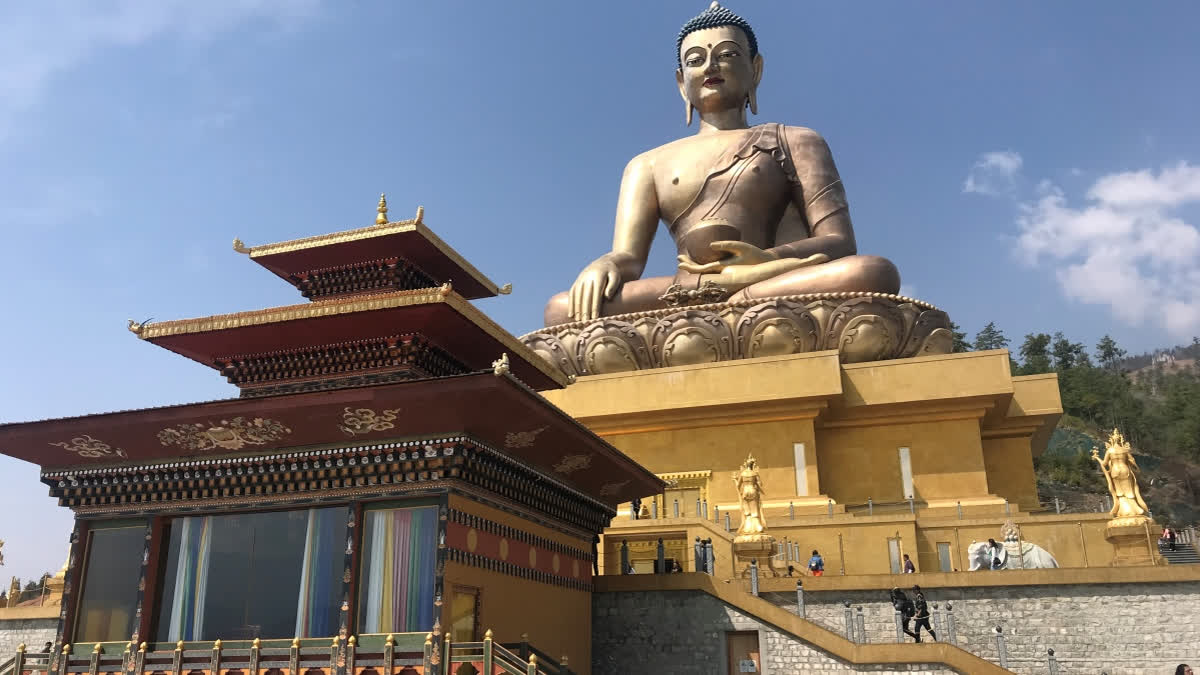Imagine a place where happiness is not just a fleeting emotion but a way of life. Welcome to Bhutan, a kingdom where the government’s primary objective is the happiness of its people. This mystical land, with its lush valleys, towering mountains, and ancient monasteries, remains one of the last unspoiled havens on the planet. What sets Bhutan apart is not just its stunning natural beauty, but its commitment to Gross National Happiness (GNH) – a philosophy that prioritizes the well-being of its citizens over economic growth.
Nestled in the eastern Himalayas, the Kingdom of Bhutan is a land of serene landscapes, rich culture, and extraordinary governance. Known for its unique approach to development, Bhutan has captivated the world’s imagination as the happiest country on Earth. This small, landlocked nation, with its warm-hearted people and visionary policies, offers a glimpse into an ideal society where well-being and progress go hand in hand.
A kingdom like no other
As we made a steep landing cutting through the blue skies and towering mountains in the city of Paro, we were welcomed with a chilly breeze – a dramatic contrast from the scorching heat of western India. We knew we were in for a lot of fun on this enchanting journey in the neighbouring country called the Kingdom of Bhutan.
With their customary welcome right after the landing, we were impressed and humbled by the humility of the citizens of the country. There were no apprehensions in believing the much-known claim that ‘Bhutan is the world’s happiest country’. Why? People are warm and content in what they do. They believe in serving the nation and welcoming tourists from across the world with warmth and respect. There is no doubt that Bhutan’s journey towards becoming the world's happiest country is deeply rooted in its culture and traditions. The kingdom’s official religion, Vajrayana Buddhism, emphasizes inner peace and compassion, which are reflected in the everyday lives of the Bhutanese people. Monks in crimson robes, fluttering prayer flags, and intricately designed dzongs (fortresses) are ubiquitous, boasting a constant reminder of the country’s spiritual heritage.
Unlike many countries that measure progress through Gross Domestic Product (GDP), Bhutan uses GNH, a holistic approach that takes into account sustainable development, environmental conservation, cultural preservation, and good governance. This innovative model has drawn global admiration and has been recognized by the United Nations as a pioneering effort in measuring happiness and well-being.
Warmth of the Bhutanese people
One of the most striking features of Bhutan is the warmth and hospitality of its people. Bhutanese society is characterized by strong communal ties and a deep sense of belonging. Like many visitors, who often remark on the genuine friendliness and openness of the locals, who are always ready to share their rich cultural heritage with outsiders, we have no other opinion but to nod in agreement.
In Bhutan, community and family bonds are paramount. The Bhutanese live by the concept of ‘Tha-Dam-Tse’, which means utmost loyalty and devotion. This principle is evident in their everyday interactions, whether it’s a communal prayer meeting or a village festival like Tshechu. The country’s low crime rate and high levels of social trust further contribute to the overall sense of well-being and happiness.
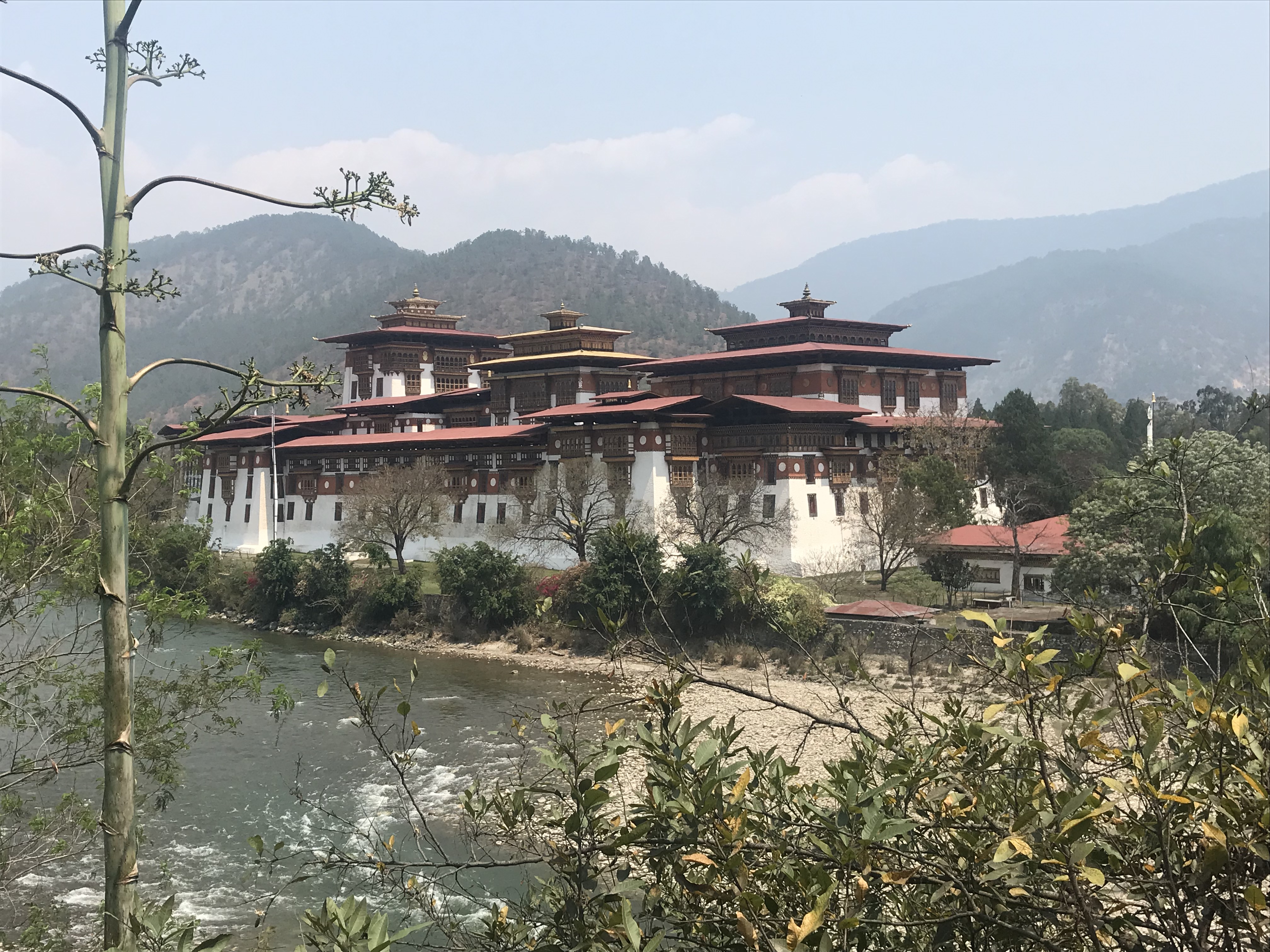
Visionary governance and policies
Bhutan’s government, guided by the monarchy, has implemented policies that prioritize the health and happiness of its citizens. One of the most remarkable aspects of Bhutanese governance is the provision of free healthcare. Every citizen has access to quality medical services without any cost, which clearly reflects the government’s commitment to the well-being of its people and visitors in the country.
Education is another area where Bhutan shines. The government provides free education up to the tertiary level, ensuring that every child has the opportunity to learn and grow. This emphasis on education has resulted in high literacy rates and a well-informed populace that can actively participate in the country’s development. The educational institutions primarily teach arts and crafts, which is remarkable and makes its people more connected to nature and people.
Above all, environmental conservation is also at the heart of Bhutan’s policies. The country has pledged to remain carbon neutral and has made significant strides in preserving its natural resources. Over 70% of Bhutan’s land is covered in forests, and the government has implemented strict regulations to protect its pristine environment. Interestingly, the majority of the houses and monasteries have been painted with natural paints, which are touted to be only made in Bhutan using vegetables and plants. This dedication to sustainability not only enhances the quality of life for the Bhutanese but also sets a global example for responsible stewardship of the planet.
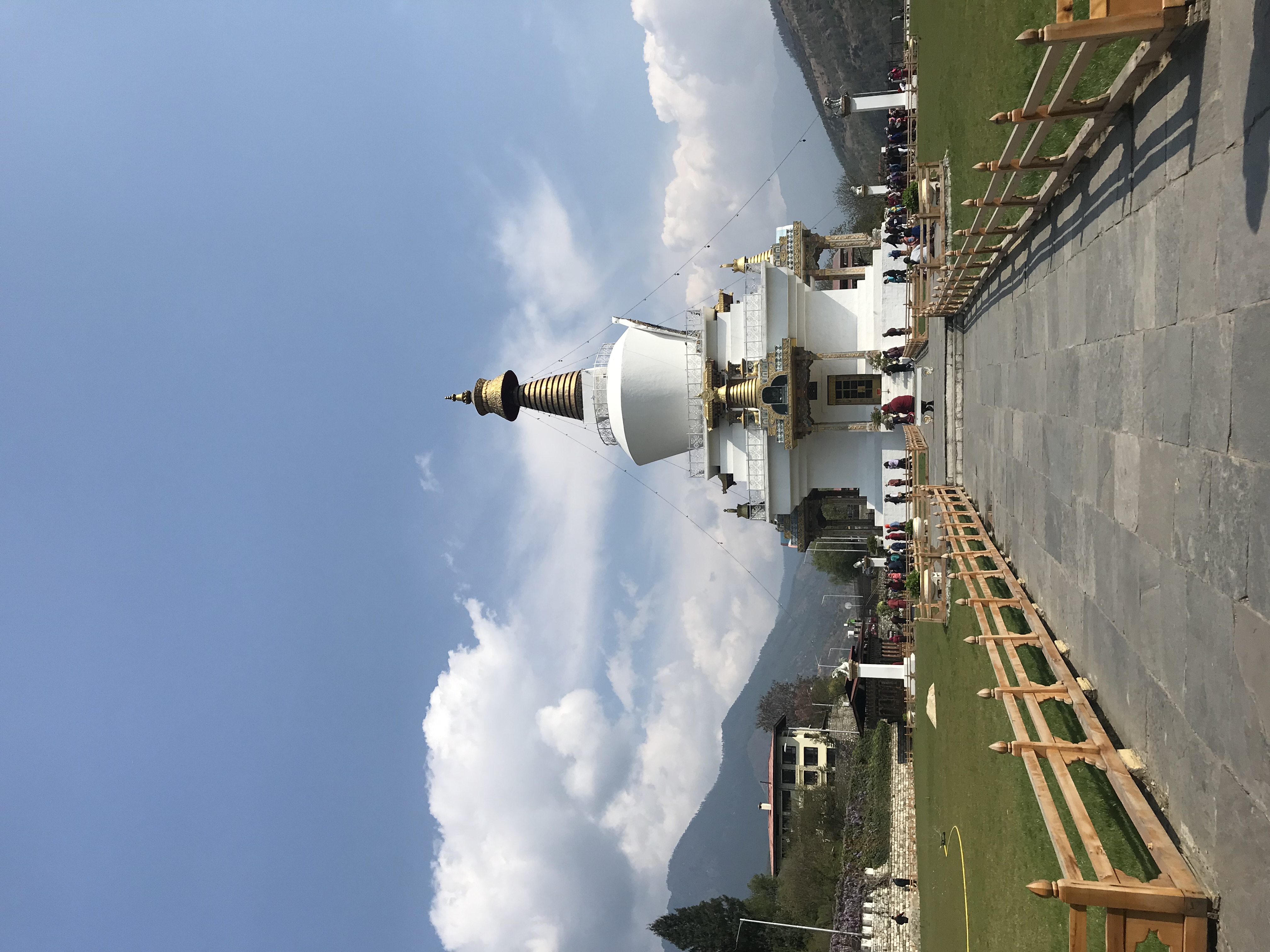
The revered Monarchs
In Bhutan, the monarchy is not just a symbol of power but a source of inspiration and guidance. The kings of Bhutan, known as the Dragon Kings, are deeply revered by the people. The current king, Jigme Khesar Namgyel Wangchuck, is affectionately referred to as the ‘People’s King’. His dedication to the welfare of his countrymen and his hands-on approach to governance have earned him immense respect and admiration. “King is our god,” a local man said when we asked why every place houses huge oils and portraits of the king and his family.
King Jigme Khesar Namgyel Wangchuck, like his father and predecessors, represents the values of compassion, humility, and service. The monarchy’s close connection with the people is evident in the king’s frequent interactions with citizens, from visiting remote villages to participating in community activities. This personal touch inculcates a deep sense of loyalty and trust between the monarchy and the populace.
The previous king, Jigme Singye Wangchuck, who abdicated in favor of his son, is credited with introducing the concept of GNH and modernizing the country while preserving its cultural heritage. His visionary leadership laid the foundation for Bhutan’s unique development path and continues to influence the country’s policies.
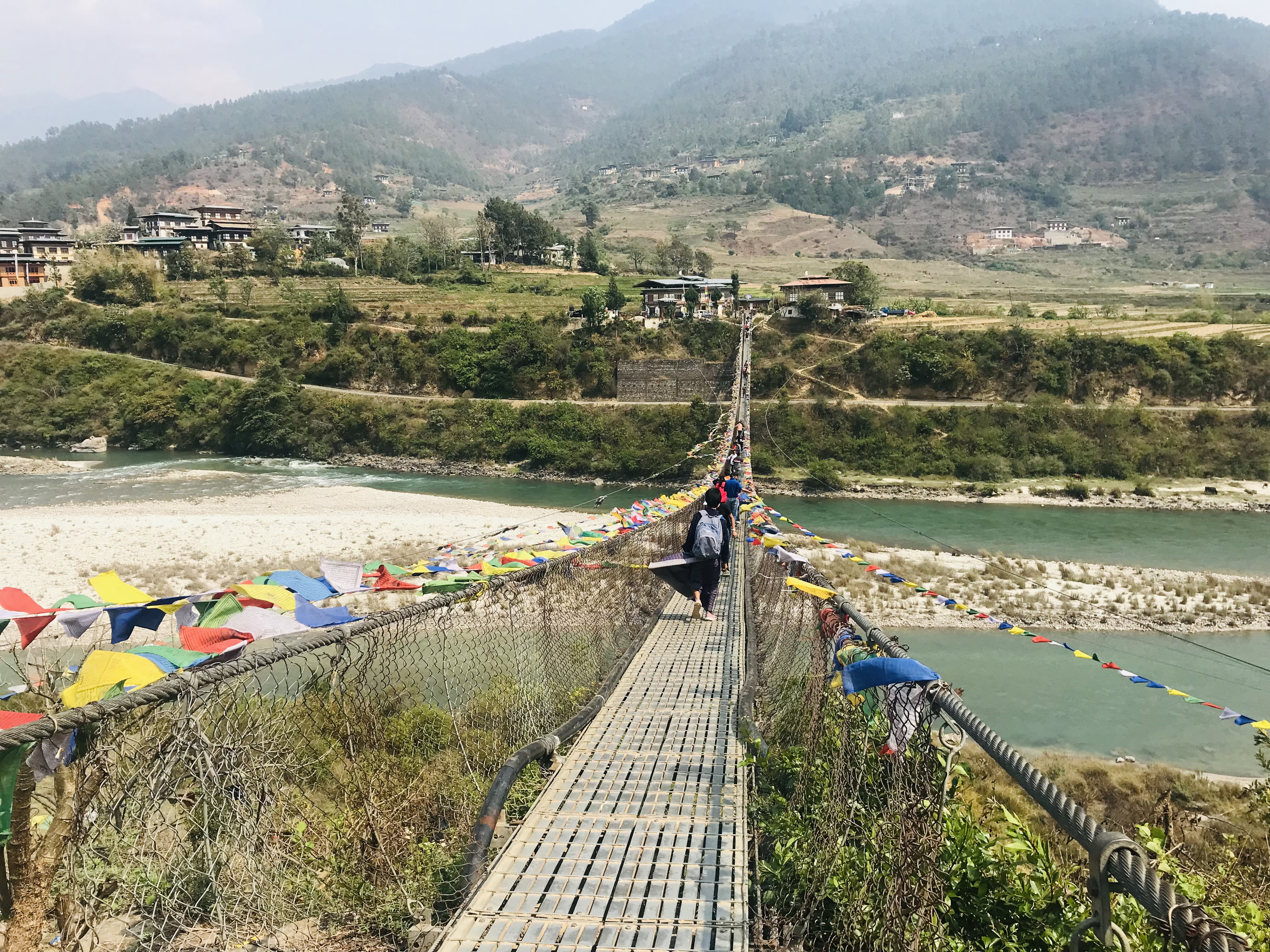
Cultural riches and festivities
Bhutan’s vibrant culture is a reflection of its enduring traditions and way of life. The country’s festivals, known as ‘tsechus’, are colorful celebrations that bring communities together in joyous harmony. These festivals, held annually in various dzongs and monasteries, feature masked dances, traditional music, and religious rituals. The most famous of these is the Paro Tsechu, which attracts thousands of locals and tourists alike. We were many of the lucky tourists to experience the mesmerizing cultural festival during our visit to the country.
Undeniably, Art and architecture are integral to Bhutanese culture. Intricately painted thangkas (religious scrolls), handwoven textiles, and beautifully crafted wooden houses showcase the nation’s artistic prowess. The traditional dress, ‘gho’ for men and ‘kira’ for women, is not only a source of pride but also a symbol of Bhutanese identity.
A journey to the happiest country
Our journey through Bhutan was nothing short of magical. We began in Paro, exploring the iconic Tiger’s Nest Monastery after acclimatising for three to four days in the country before we marched on our hiking adventure. Perched dramatically on a Cliffside, this historical monastery is worth the trouble of hiking on the steep way that leads to the Buddha temple. In Thimphu, we marvelled at the towering Buddha Dordenma statue and enjoyed the vibrant weekend market. Punakha’s stunning Punakha Dzong, set at the confluence of two rivers, left us in awe.
One of the longest suspension bridges across river Punakha laced with prayer flags on both sides is the must-visit site. We had the most peaceful experience sitting and embracing the beauty of the bridge and the floating river below while the cold breeze kissed our faces. A hot cup of coffee or tea at the other end of the bridge is a must and we promise, you are never going to forget this experience. The serene Phobjikha Valley, home to the endangered black-necked cranes, was a peaceful retreat.
Throughout our travels, we were embraced by the warmth of the Bhutanese people and their deep-rooted culture that made our experience truly unforgettable in the Land of the Thunder Dragon.
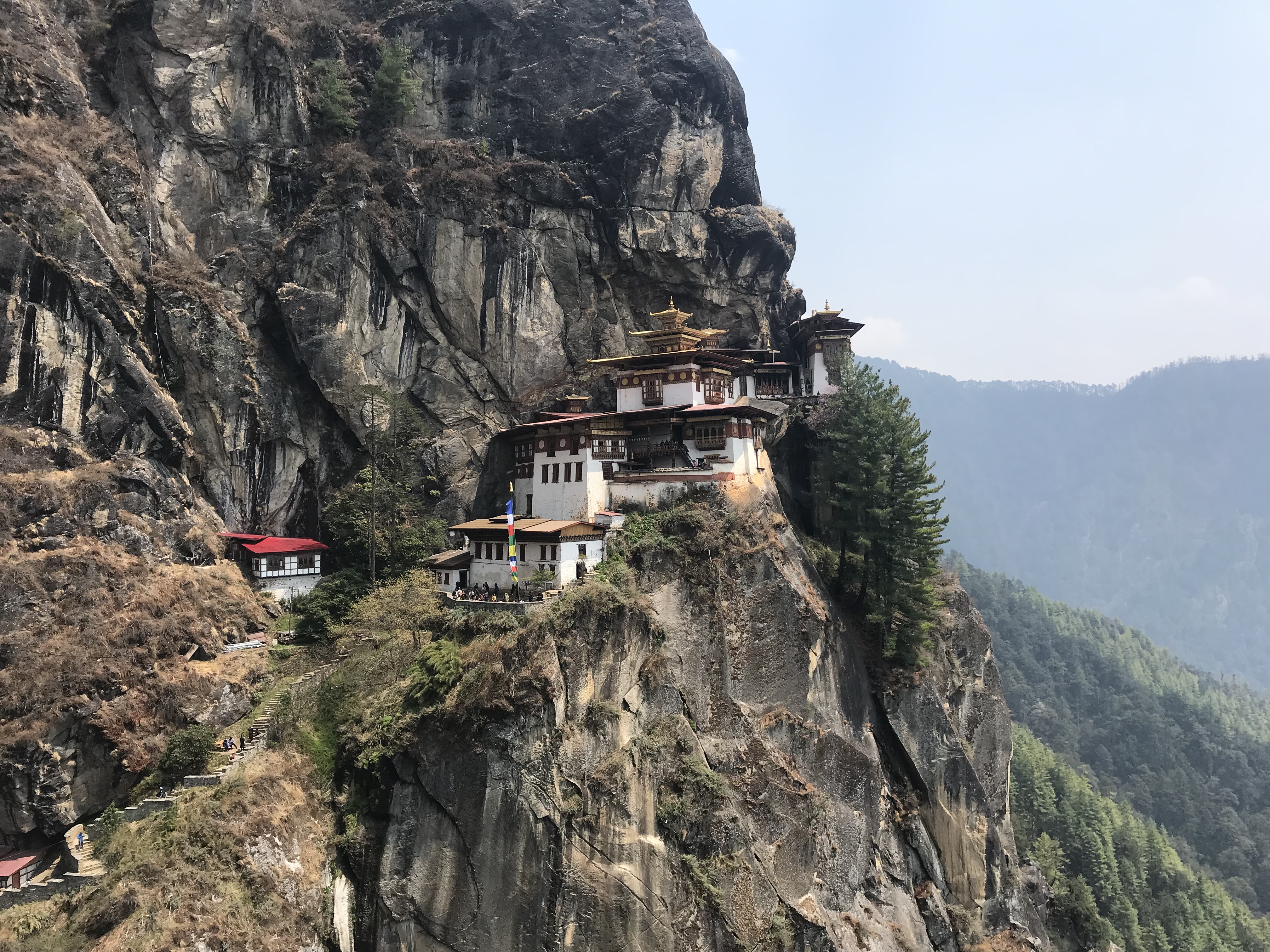
A trip like no other
Travelling to Bhutan is like stepping into a different world – one where happiness is the ultimate goal and every aspect of life is mingled with nature and spirituality. The kingdom’s breathtaking landscapes, from the snow-capped peaks of the Himalayas to the verdant valleys dotted with prayer wheels, provide a serene backdrop for introspection and rejuvenation.
The country’s unique approach to tourism ensures that visitors have an enriching experience while minimizing the impact on the environment and culture. The government’s policy of ‘high value, low impact’ tourism means that visitors must travel with licensed tour operators and pay a daily fee that covers accommodation, food, and transportation. This approach helps maintain Bhutan’s exclusivity and preserves its pristine beauty.
Undoubtedly, Bhutan offers a refreshing perspective on what it means to live a fulfilling and meaningful life. Its commitment to Gross National Happiness, free healthcare and education, environmental conservation, and the benevolent leadership of its monarchy create a society where well-being and progress are harmoniously balanced. As the world struggles with increasing stress and inequality, Bhutan proudly demonstrates that true happiness is achievable through thoughtful governance and a compassionate way of life.
Read More:
